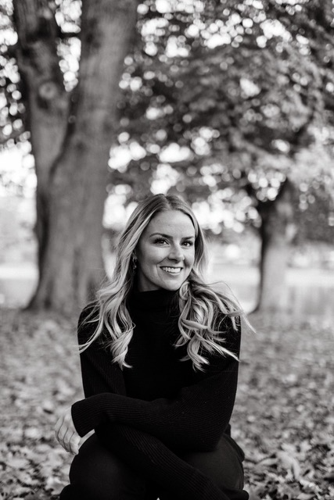Social media has had a large impact on the fitness industry over the last decade. It has changed the way humans find fitness communities and participate in races all over the world, but has also provided a stage for body insecurity, and unqualified professionals monetizing misinformation. The fitness lifestyle is a science-backed, nutrition-focused and social community of individuals interested in personal growth. The beautiful part of social media has been identifying those individuals with the same lifestyle in every corner of the world and connecting over a shared interest. The less desirable impact of social media on the fitness industry has led to multi-level marketing scams and an unrealistic portrayal of health, amongst other problems. It is important to remember: We have the choice to engage in social media in a way that feels empowering, healthy and helpful to us!
Social media — Instagram, Facebook, Snapchat, Twitter and the like — has had a pervasive impact across every industry, especially since the COVID-19 pandemic. One of the best impacts social media has had on the fitness industry post-pandemic was that people found running again. The statistical surge of people participating in running is so significant it is called the “pandemic running boom." With the introduction of virtual races, the accessibility to do a solo sport that only requires sneakers, and gyms being closed, people laced up their shoes and started running. The surge hasn’t slowed down since; race participation is at an all-time high, more people are engaging on Strava, and trails are being utilized for running once again.
People are also reading…

In addition to the pandemic running boom that was highlighted through social media, the increased accessibility for at-home workouts through social media changed the fitness industry significantly as well. There are endless workout channels you can follow on YouTube and Instagram in the comfort of your living room in lieu of going to a brick-and-mortar gym. This has expanded the ability for trainers and fitness professionals to earn a living and reach more individuals outside of their local YMCA.
Social media fitness influencers have expanded exponentially and changed the way fitness is monetized and consumed. What makes someone a fitness influencer? The truth: anyone with a matching sports bra and leggings who looks relatively in shape. Unfortunately, there is no accountability, standards or science to uphold in the land of Instagram influencers. This becomes a problem for specialists and scientists who spent years in education gaining the proper knowledge and understanding of human performance, biomechanics and kinesiology. They have equal opportunity to earn a living using their credentials, however the landscape of who is successful in the fitness industry has shifted more to likes and shares than degrees and certifications. For fitness professionals who don’t "look the part" of a fitness influencer, they can have all the accolades but none of the followers, and be crowded out.

Mara Casler
Although everyone has a right to earn a living with whatever resources they have, there is a call for transparency online with fitness influencers. Not everyone online should be fielding questions about nutrition, intermittent fasting or endurance racing. When you follow a fitness influencer account, look for their credentials, what they have knowledge in experience in, and how they can be most helpful to you. If they claim to know everything about anything, think critically about where to seek your information. It is also important to remember that health and fitness comes in all shapes and sizes, colors and genders, and walks of life. Not everyone that looks healthy, is healthy — but they certainly will sell you on it. Remember that social media is a highlight reel of people’s best moments that have been altered, filtered and touched up. It is not an accurate depiction of real life, and so if it looks to good to be true ("get a six-pack in three days with this program!") it usually is.
Social media is an incredible vehicle for connection. Individuals share challenges and knowledge, motivate one another and invite others to experience fitness in the way they love. The fitness community drives the social standard for growth and change, and creates a new baseline of what is possible. When used for good, social media can change us for the better in fitness, health and happiness, and connect us with others around the world who want the same.
Mara Casler, of Aurelius, is a certified nutritionist through Cornell University, and holds a bachelor's degree in fitness development and a master's degree in recreation therapy from SUNY Cortland. She is a triathlete with a passion for weightlifting, hiking with her dog Oakley, and helping people become the healthiest version of themselves.Â












